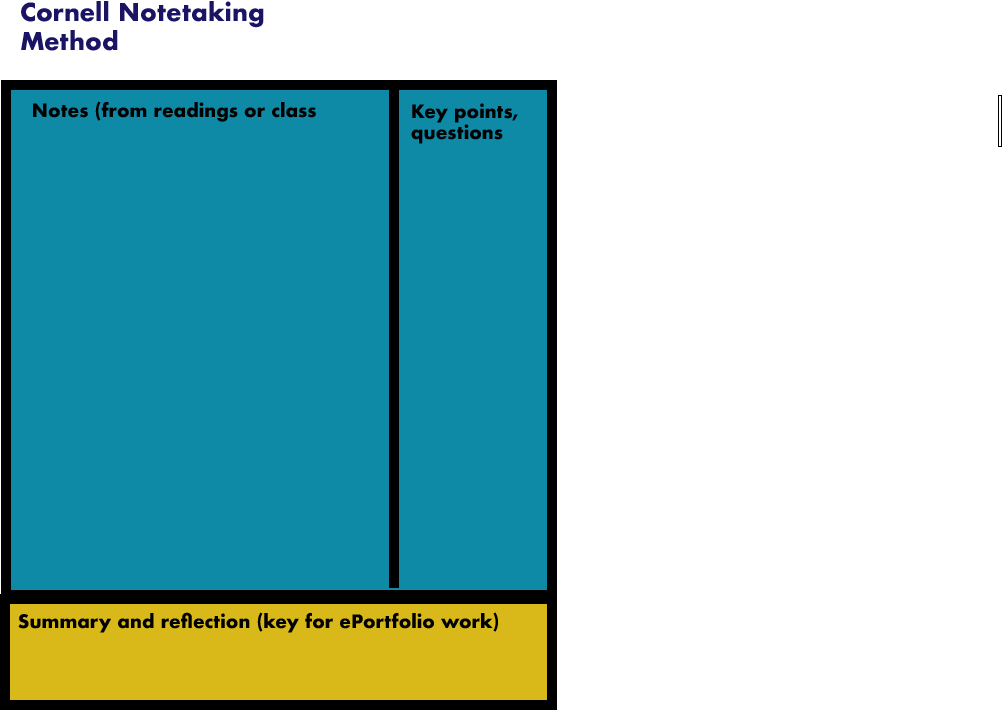3 Evaluate methods for taking notes on texts and readings
You’ve got the PowerPoint slides for your lecture, and you know where to find the other information on Moodle. Do you need to take notes as well?
Despite the vast amount of information available in electronic formats, taking notes is an important learning strategy. In addition, the way that you take notes matters, and not all notetaking strategies lead to equal results. By considering your notetaking strategies carefully, you will be able to create a set of notes that will help you retain the most important concepts from lectures and tests, and that will assist you in your exam preparation.
Two Purposes for Taking Notes
People take notes for two main reasons: (1) to keep a record of the information they heard. This is also called the external storage function of notetaking, and (2) to facilitate learning material they are currently studying.
The availability of information on the internet may reduce the importance of the external storage function of notetaking. When the information is available online, it may seem logical to stop taking notes. However, by neglecting to take notes, you lose the benefits of notetaking as a learning tool.
How Notetaking Supports Learning
Taking notes during class supports your learning in several important ways:
- Taking notes helps you to focus your attention and avoid distractions.
- As you take notes in class, you will be engaging your mind in identifying and organizing the main ideas. Rather than passively listening, you will be doing the work of active learning while in class, making the most of your time.
- By creating good notes, you will have a record for later review. Reviewing a set of condensed and well-organized notes is more efficient than re-reading longer texts and articles.
Effective Notetaking Strategies

While taking notes is helpful, not all notetaking strategies are equally beneficial. Many students try to write down everything the instructor is saying – this is especially true for students who take notes with laptops. Unfortunately, this strategy does not help you to engage in critical thinking and to identify important concepts. It is more effective to focus on writing down key concepts, rather than recording all of the instructor’s words. For many students, this may be a good reason to take notes by hand, rather than with a laptop. In some studies, students who have taken notes by hand have outperformed those taking notes with a laptop on tests. Taking notes by hand also allows you to avoid distracting yourself and others with websites, e-mail, or online chatting during class time.
Rather than taking word-for-word notes, consider writing an outline of the lecture’s most important points and how they fit together. Additionally, watch for other information that your instructor emphasizes, either verbally or with gestures, and add these key concepts to your notes. Leave a wide margin on one side of the page to write down key words and questions after the lecture. At the bottom of each page of notes, leave room to write a short summary of the information on that page. Spend time after class reviewing your notes.
Additional Resources: Want to learn more about the research on effective notetaking? Watch this video for additional information on effective ways to take notes.
This video demonstrates how to integrate the Cornell Notetaking system with OneNote
References
Oppenheimer, D. (2017, January). On Noteworthy Notes: Not All Note Taking is Created Equal. Webinar presented at the Learning Specialists Association of Canada. Retrieved from https://lsac.wildapricot.org/page-18154

